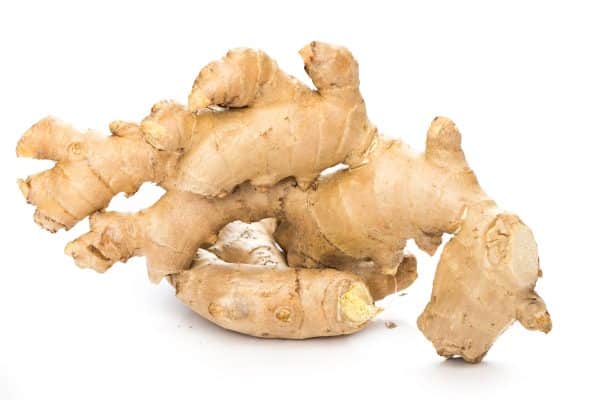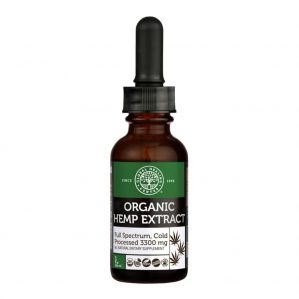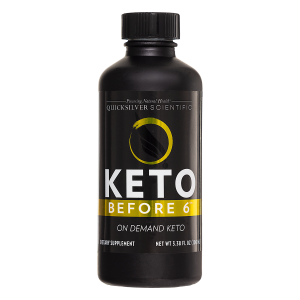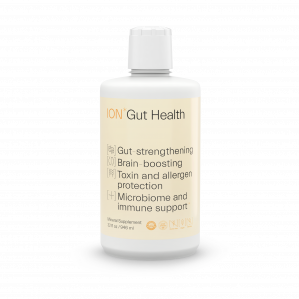What You Need To Know About Fermented Foods – 7 Amazing Health Benefits of Fermented Foods
7 Amazing Health Benefits of Fermented Foods
Overview

In recent years, fermentation as a natural food processing method has attracted renewed interest from the scientific community and health experts. Proponents claim that the fermenting bacteria present in these foods can help diversify the gut microbiome. A favorable and complex gut microbiome can help control obesity, lower inflammation, enhance cognitive performance, improve psycho-emotional health, keep up immune function, and reduce the risk of chronic diseases.
What is fermentation?
Long before chemical preservatives came into the picture, the technique of fermentation was used to increase the shelf life of foods and drinks. It involves employing the metabolic activity of microorganisms to change the chemical character of foods.
When foods are exposed to active living cultures of microorganisms (like yeast or bacteria) in the absence of oxygen, natural sugars present in them break down into alcohols and organic acids. This process changes the texture, taste, flavor, aroma, and nutritional value of the food, giving it a unique character that is totally different from its original counterpart. Alcohols and acids are naturally more stable than sugars, which can extend the shelf life by years in some cases.
Avoid Toxins form Plastic Botles
However, preservation is not the only purpose of fermentation. This technique is also used to make some foods more digestible, amplify their nutritional value, or stimulate the production of digestive enzymes. For example, yogurt (fermented milk) does not have a long shelf life outside the refrigerator, but it works as an excellent probiotic that can improve digestion and nourish mucous membranes. Also, it is way easier to digest than milk. Unlike milk, it can be safely enjoyed by people with inflammatory bowel diseases and those who are lactose intolerant. Cheese, which is also a fermented product of milk, has about 600% higher protein content than milk and boasts an impressive nutritional profile.
Fermentation is also used to make herbal medicines and formulations that are less stable in their original form. Some fermented foods like vinegar also work as natural preservatives and taste enhancers to make pickles or to add depth to your cooking.
Here are some examples of fermented foods:
- Yogurt
- Kefir
- Kombucha
- Sauerkraut
- Kimchi
- Sourdough bread
- Tempeh
- Miso
- Natto
- Vinegar
7 healthy reasons to include fermented foods in your diet
1. Fermented foods are excellent sources of health-boosting probiotics
Fermented foods have active living bacterial cultures that can help enrich the gut microbiome with a wide range of beneficial gut bacteria. Maintaining a healthy and
Evidence shows that eating fermented foods along with meals can ease digestion and prevent common digestive problems like diarrhea, constipation, bloating, pain, heartburn, incomplete digestion, accumulation of toxins along the intestinal walls, etc.
Fermented foods are particularly useful when you are (or have been) on a long course of antibiotics. Antibiotics kill all types of bacteria (including beneficial microbes), which can result in uncomfortable digestive symptoms and compromise the natural immune response. Including fermented foods in your diet during and after the treatment can help restore and replenish the gut microbiota.
2. A healthy gut translates into a robust immune system
Most of your immune system actually lives inside your gut, which means the more diverse gut microbiome you have, the stronger your resistance will be against infections. This is because gut bacteria play a huge role in regulating various immune functions, such as stimulating the production of antiviral and antibacterial proteins, reducing inflammation-induced damage, and preventing immune cells from attacking healthy cells.
Research shows that eating foods rich in probiotics can help activate multiple defense mechanisms against invading pathogens and reduce inflammation, helping you recover faster from common illnesses like colds and flu. Lactic acid bacteria present in fermented foods such as kefir, kimchi, yogurt, and kombucha have been shown to exhibit antimicrobial activity against several disease-causing pathogens, including Candida albicans, Staphylococcus aureus, Escherichia coli, Helicobacter pylori, and Salmonella enterica.
3. Fermented foods can make your meals more nutritious
Fermentation increases the concentration of proteins, vitamins, zinc, magnesium, iron, calcium, and other nutrients present in foods. Micronutrients like folate, biotin, riboflavin, B-12, C, and K are particularly increased in fermented vegetables and fruits.
Apart from boosting the nutritional value of foods, fermentation also enhances the bioavailability of nutrients by destroying certain antinutrients like phytates, oxalates, and lectins. Antinutrients are naturally found in nuts, seeds, whole grains, legumes, lentils, soybeans, vegetables, and many nutrient-dense plant foods. These compounds can bind with vitamins and minerals, making them unavailable for absorption. Antinutrients can also block digestive enzymes needed for the breakdown of proteins.
The fermenting bacteria helps degrade these antinutrients and also releases certain key enzymes that assist in the breakdown of foods, making antioxidants and phytochemicals easily available to cells. Study shows that adding fermented foods to your diet may increase the absorption of iron and zinc from plant sources.
4. Fermented foods are easier to digest

Lactose found in milk and dairy products—which is difficult to digest for many people—is broken down into glucose and galactose by the fermenting bacteria. Studies have shown that fermented milk products like yogurt and kefir can help in the digestion of lactose and improve lactose tolerance.
Eating fermented foods along with meals also increases the activity of intestinal enzymes like trypsin and lipase that aid in the digestion of proteins and fats.
5. Fermented foods are rich in psychobiotics
Your mental health is intimately linked with your digestion through a long and complex network called the vagus nerve. The vagus nerve establishes a direct communication channel between the gut and brain, which allows the brain to react to (and be affected by) even the slightest changes happening inside the digestive tract.
Evidence suggests that feeding your gut with probiotics—either from natural sources or from supplements—can boost cognitive function, lower stress hormones, improve mood and behavior, and reduce the risk of anxiety and depression.
Fermented foods are naturally high in brain-boosting probiotics (psychobiotics) that can activate the vagus nerve and encourage relaxation. Numerous studies have linked regular consumption of naturally fermented products with better stress management and improved psycho-emotional health.
6. Fermented foods can help fight chronic inflammation
A healthy gut microbiome plays an important role in regulating inflammation—which is why people with inflammatory and autoimmune conditions have fewer types
of beneficial bacteria in their gut. Research shows that fermented foods and drinks like yogurt, kefir, kombucha, sauerkraut, and kimchi can supply your gut with a diverse range of microbes and reduce inflammation markers. These foods are also high in micronutrients and disease-fighting compounds that can help reduce oxidative damage.
Regular consumption of probiotic-rich foods has been shown to help with a wide range of chronic conditions, including
arthritis, diabetes, cardiovascular diseases, and colon cancer. Yogurt and kefir have been shown to soothe gut inflammation and reduce symptoms of IBS, ulcerative colitis, and Crohn’s disease. Kimchi (a fermented Korean dish) has been shown to help people with long-term allergic conditions like eczema, asthma, and rhinitis.
7. Feeding your gut can lower your belly fat!
While eating fermented foods alone cannot make you burn more fat, it can create a favorable condition for healthy weight management. Several studies have shown that an imbalance of gut bacteria promotes weight loss and obesity. In one study, when the gut microbiome from an obese twin was transferred to healthy mice, they gained more weight than those mice that received the microbiome from the lean twin.
Researchers concluded that maintaining a healthy population of lactic acid bacteria and reducing the number of bad bacteria can help support weight loss. One study found yogurt consumption to be associated with reduced body fat, lower BMI, and smaller waist circumference. Eating probiotic-rich foods regularly can also help stimulate certain fat-burning enzymes, which can improve your metabolic rate and energy expenditure.
Possible side effects and safe practices

Fermented foods and drinks may not be safe for persons with a compromised immune system, HIV, or histamine intolerance. Probiotics-rich foods may also interact with certain medications. Consider speaking with your doctor if you are taking some long-term medicines or recovering from an illness.
When buying fermented food products, check the label to make sure they are naturally fermented and not pickled using vinegar. Also, some store-bought foods may have high amounts of sodium or sugar in them, which can seriously compromise their health benefits.
Final thoughts
Fermented foods are natural sources of probiotics, which makes them immensely beneficial for supporting gut health and immunity. Apart from adding a delightful tangy flavor and tartness, these foods can make your meals extra nutritious, ease the digestion process, and destroy harmful substances that interfere with nutrient absorption.
However, like all things good, fermented foods should also be consumed in moderation. Being naturally acidic in nature, they may increase stomach acidity and worsen symptoms of acid reflux.
Remember, “Do Something Everyday That Heal Your Body!”
To Your Health!
References
https://pubmed.ncbi.nlm.nih.gov/28945458/
https://onlinelibrary.wiley.com/doi/abs/10.1002/ptr.2650080205
https://www.ncbi.nlm.nih.gov/pmc/articles/PMC9003261/
https://www.ncbi.nlm.nih.gov/pmc/articles/PMC5216880/
https://www.ncbi.nlm.nih.gov/pmc/articles/PMC4528021/
https://www.ncbi.nlm.nih.gov/pmc/articles/PMC3337124/
https://www.ncbi.nlm.nih.gov/pmc/articles/PMC4006993/
https://pubmed.ncbi.nlm.nih.gov/30673668/
https://www.ncbi.nlm.nih.gov/pmc/articles/PMC6261201/
https://pubmed.ncbi.nlm.nih.gov/12728216/
https://pubmed.ncbi.nlm.nih.gov/24695892/
https://www.nature.com/articles/s41398-021-01422-7
https://www.ncbi.nlm.nih.gov/pmc/articles/PMC5216880/
https://www.sciencedirect.com/science/article/pii/S1756464621001432























1 Comment
[…] the other hand, menaquinone has a wider range of functions and is found in animal-based foods and fermented products. It is important to note that Vitamin K2 is further classified into several subtypes, including […]